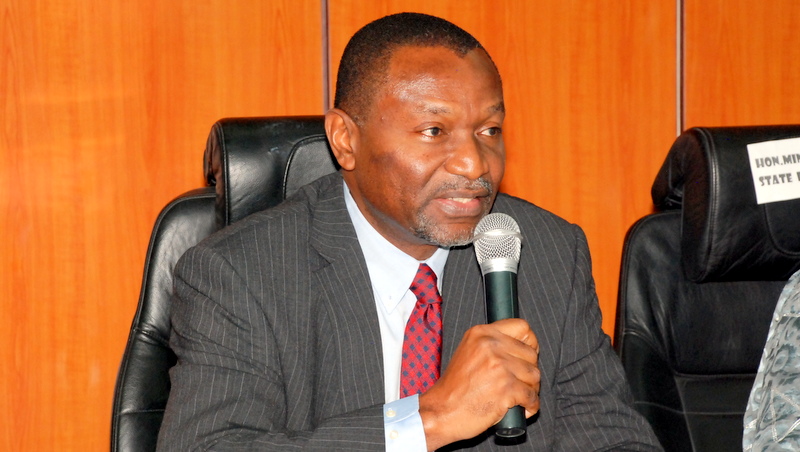- Economy Must Grow Above 3% for Citizens to Enjoy – Udoma
The Minister of Budget and National Planning, Senator Udo Udoma, on Tuesday said that the Nigerian economy must record a growth rate of at least three per cent for the people to significantly enjoy the benefits associated with economic growth.
He said this during a media briefing on the 24th edition of the Nigerian Economic Summit.
The summit, scheduled to hold on October 22 and 23 in Abuja, has as its theme ‘Poverty to prosperity: Making governance and institutions work’.
Udoma, while responding to a question on why Nigerians had yet to feel the impact of economic growth despite the country’s exit from recession, said the population, which is growing at an average of three per cent, had made it challenging for the Gross Domestic Product growth rate to be inclusive.
For instance, he said since the country’s exit from recession, the rate of growth had not increased above the population growth rate.
Nigeria’s economy grew by 1.5 per cent in the second quarter of this year as against the 1.95 per cent growth rate recorded in the first quarter.
Udoma stated, “You will recall that in the second quarter, the GDP growth rate was 1.5 per cent, which was lower than as expected. We have a lot more work to do, because our population is growing at about three per cent, and unless we are growing at more than four or five per cent, we will not be able to feel the impact.
“And that is why we have to work even harder to get the growth at the level at which we wanted, and that is basically why we have to work so hard and we cannot be complacent.”
Speaking on the summit, the minister pointed out that discussions would be centred on five key thematic areas.
These are corruption and rule of law; effective public institutions; sustainable economic opportunities; human development; and participation and citizens’ rights.
Udoma said, “This year’s summit is designed to accelerate progress towards the implementation of the governance component of the Economic Recovery and Growth Plan.
“The ultimate goal is to stimulate discussions on accelerating the implementation of the ERGP strategies on governance in order to enhance the social welfare of the Nigerian people.”
The Nigerian Economic Summit is organised annually by the Nigerian Economic Summit Group in collaboration with the Federal Government, represented by the Ministry of Budget and National Planning.
It is a forum for dialogue among top policy makers and corporate leaders.
It brings together government officials, representatives of the private sector, development partners, the civil society and some members of the academia to reflect on issues constraining national development, with the aim of building consensus so as to evolve common strategies and policy frameworks for addressing the issues.

 Naira4 weeks ago
Naira4 weeks ago
 News3 weeks ago
News3 weeks ago
 Education4 weeks ago
Education4 weeks ago
 Social Media4 weeks ago
Social Media4 weeks ago
 Economy4 weeks ago
Economy4 weeks ago
 Investment4 weeks ago
Investment4 weeks ago
 Dividends4 weeks ago
Dividends4 weeks ago
 Business3 weeks ago
Business3 weeks ago





























